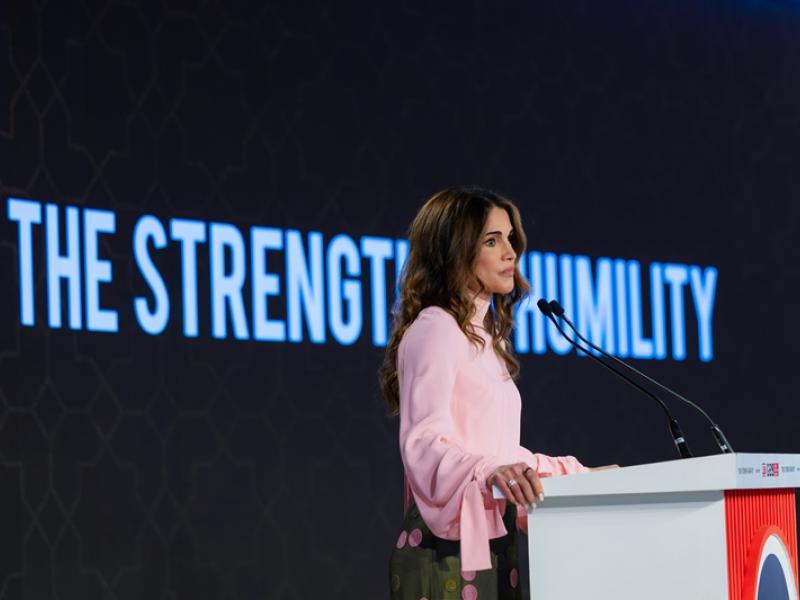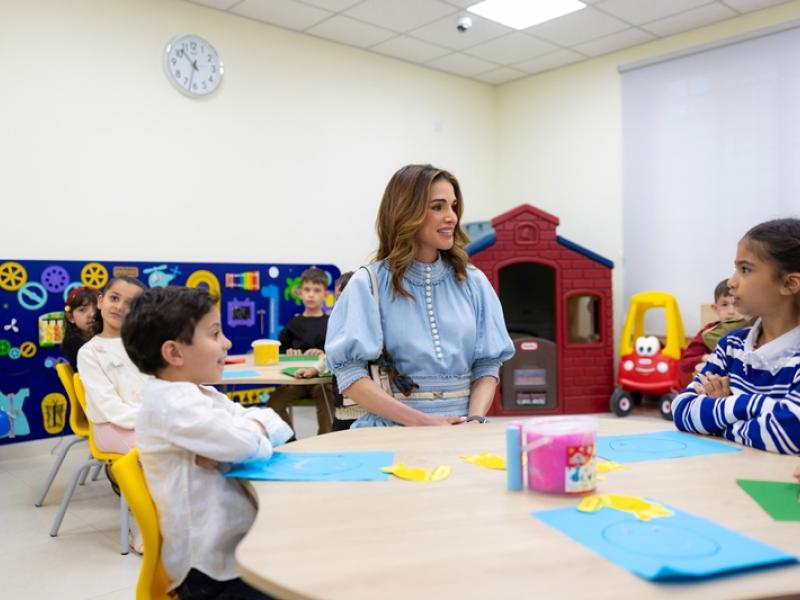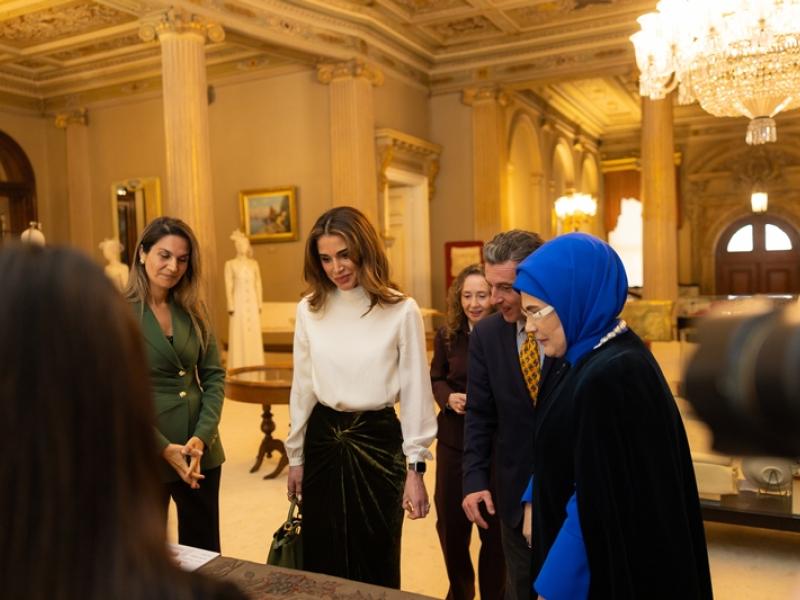(Office of Her Majesty, Press Department - Amman) Her Majesty Queen Rania Al-Abdullah attended the launch of Amnesty International’s regional version of the worldwide “Stop Violence Against Women” campaign with representatives of concerned organizations from the Middle East and North Africa as well as religious leaders attending.
The campaign which aims to tackle issues related to violence against women, generate increased awareness and create a network of specialists to deal with the issue and enable decision-makers to take appropriate means to eliminate all kinds of violence against women, whether domestic or in conflict situations.
Addressing the conference, His Majesty King Abdullah’s Advisor on Religious Affairs Chief Justice Sheikh Izzedine Al-Khatib Al-Tamimi stressed that “women in Islam have their legal, civil, and personal rights protected. There is no differentiation between men and women in religion.”
He added that violence against women and children, as well as discrimination against women was not tolerated by Islam. In her address to the conference, AI Secretary General Irene Khan underlined that violence against women is a global problem with a women attacked every 15 seconds in the US and two killed every week in the UK.
Khan said the AI’s campaign gives voice to the millions of women in the world and in the Middle East who suffer from violence whether it’s in Iraq, or the occupied territories of Palestine whose suffering is rarely covered by the media. Khan noted there was change in the region coming from within by efforts of those breaking taboos and lobbying for change.
She said there was more women’s participation and steps taken to eliminate discrimination citing remarkable international respect for Jordan whose Family Protection Management Team who won a UN Human Rights Prize for creating a model for addressing domestic violence issues in the region and helping lift the taboo on the subject of domestic violence and promote open debate on issues of human rights, equity and gender.
“The key lies in changing attitudes .. We will support human rights education awareness programs and most importantly we will call on men to join this campaign so that together we can makes a difference,” Khan said.
“We in AI are great believers in the power of an ordinary individual to bring about extraordinary change … working together we can make a difference,” Khan said adding it is not only women who suffer but also society as a whole “a nation is like a bird with two wings- if one wine is broken the bird cannot fly.”
Queen Rania, joined Sheikh Tamimi as well as head of the Public Security Department Brigadier General Tahseen Shurdum in having their hands imprinted on the banner of the campaign. The audience also listened to live testimony from a Moroccan lady who had suffered abuse and to a Palestinian woman whose child had died at the checkpoint when she could not get to a hospital.
AI works with national organizations, NGOs, the Arab League, and the Arab Women’s Organization established in March 2003 as an outcome of fruitful efforts of the Arab Women’s Summit seeking to achieve women’s empowerment through policies furthering legislation based on equality and competence and integrating women’s issues within the priorities of comprehensive development schemes.
Earlier this month, Queen Rania, President of the second Arab Women’s Summit (2002 –2004), attended the proceedings of “Women and Armed Conflict Resolutions” Forum which brought participants including Arab First Ladies among others to discuss legislation pertaining to women in conflict situations as well as ways to empower Arab women to participate in building a culture of justice and peace.
In Geneva in December 2003, Queen Rania inaugurated the “Women and War” exhibit which captures the suffering of women and shows images of their plight as a result of armed conflict and internal disturbances.
The Queen had launched the Arabic language version of the ICRC publication, Women Facing War, a study on the impact of armed conflict on women and opened an exhibition of photographs on women and war earlier in Amman and Beirut.
Jordan was the first Arab country to create a national commission for the implementation of International Humanitarian Law to harmonize the national law with the international treaties and conventions. The Kingdom was also the first Arab country to ratify the International Criminal Court Treaty.


